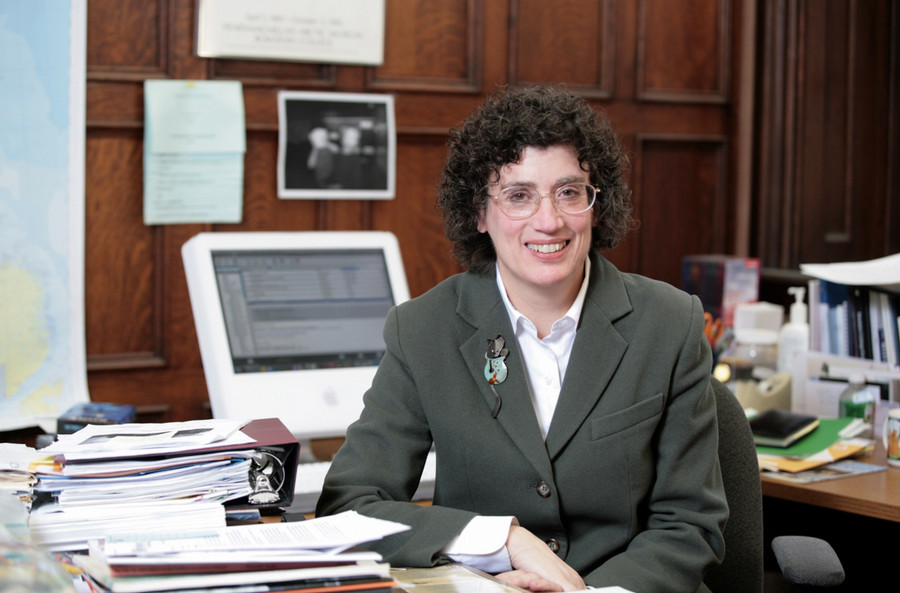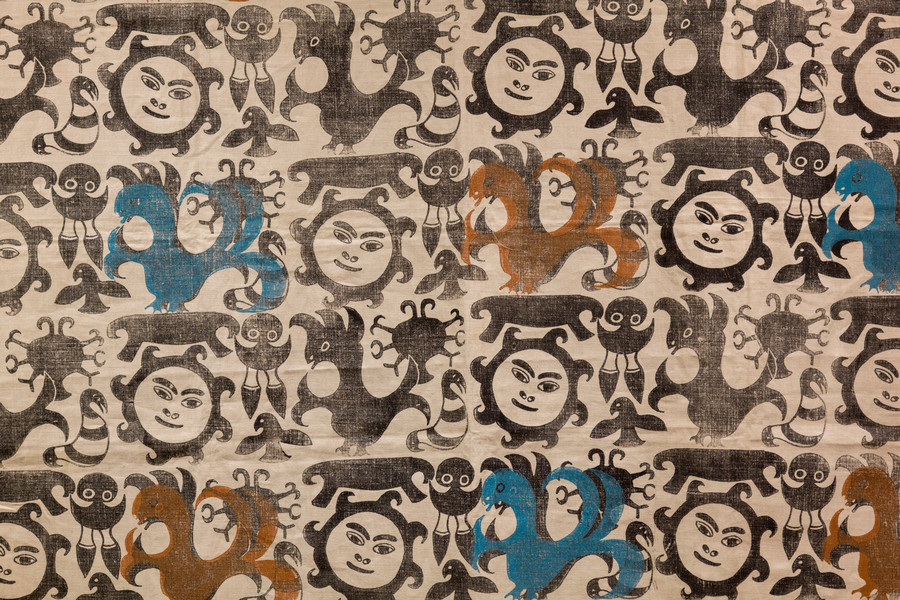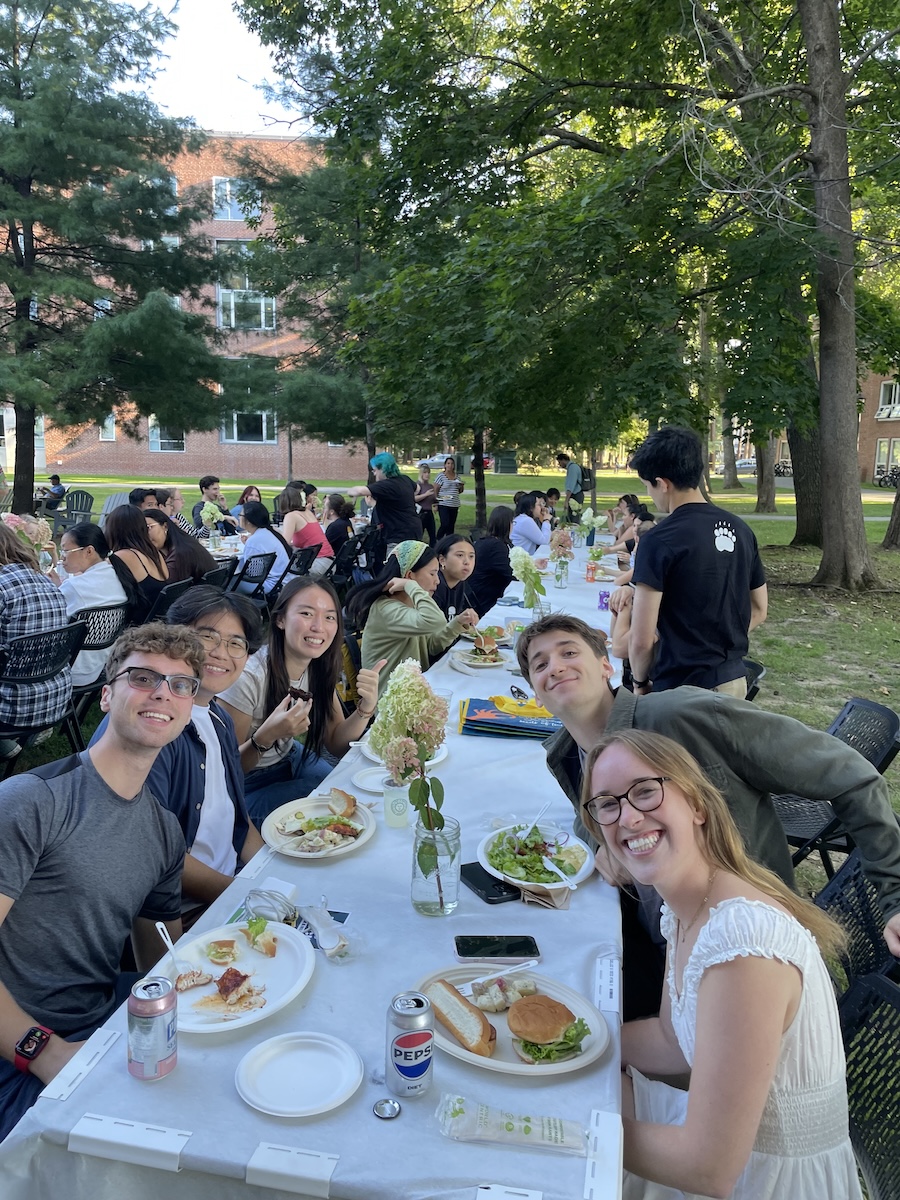J.R. Harris Elevates Black Explorers in Arctic Center Lecture
By Jane Godiner ’23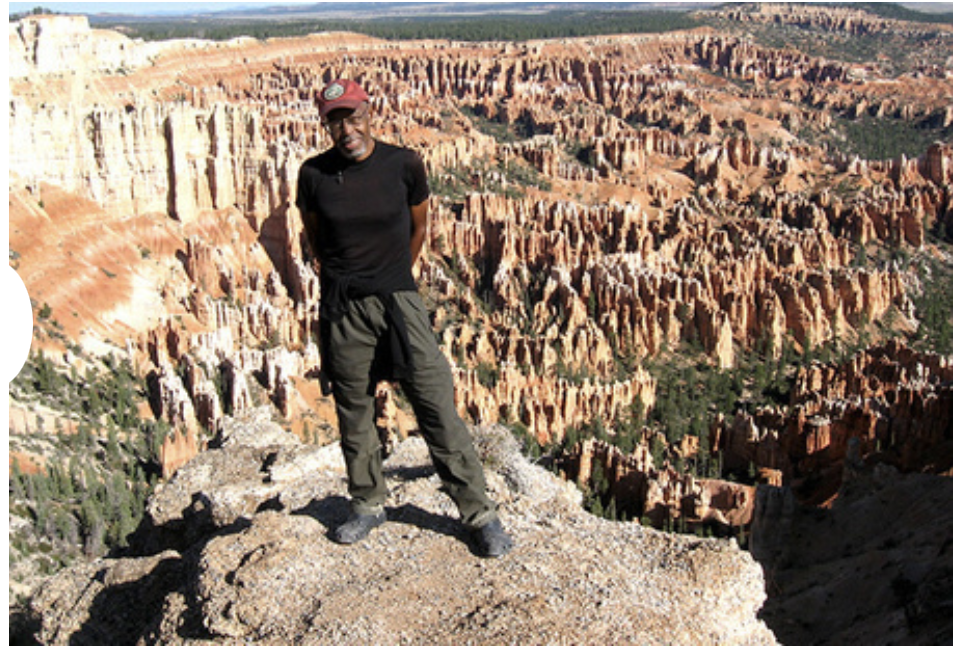
“How many African American explorers can you name, and how much of their backgrounds are you familiar with?” asked Harris at the beginning of his lecture.
“There are some endeavors where African Americans have, at times, been given recognition for their contributions—fields of education, social work, and civil rights come to mind—but there are other areas where accomplishments have been downplayed, or inaccurately reported," he continued. "One of these areas is exploration.”
On September 7, the Peary-MacMillan Arctic Museum invited members of the Bowdoin community to Kresge Auditorium to hear a talk by Harris titled, "Sambo or Superman: The Rocky Road to Recognition."
Harris is the chair of the diversity, equity, and inclusion committee at The Explorers Club in New York City, which recently launched the Society of Forgotten Explorers. The Society is organizing a digital, searchable database that will be available to both club members and non-members, "including students, historians, and anyone who is interested in explorers that have gone unnoticed or are under the radar. In essence, it is a Wikipedia of noteworthy but unacknowledged explorers."
In the spring of 2022, Director of the Peary-MacMillan Arctic Museum Susan Kaplan and Museum Curator Genny LeMoine participated in admitting into the Society of Forgotten Explorers the four Inghuit hunters—Ootah, Egingwah, Seegloo, and Ooqueah—who joined Robert Peary and Matthew Henson's expedition to the North Pole. This decision and Harris’s lecture are steps in the Museum’s continuing effort to share untold—yet exceedingly meaningful—stories of exploration.
Harris’s lecture at Bowdoin melded personal accounts of his adventures with historical accounts of the Black explorers that came before him, as well as his experience as an ethnographic researcher on the lives, values, and positionality of Black Americans.
A lifelong resident of New York City, he has completed more than fifty multi-week treks, most of them alone, since 1966. "During that time I have faced terrible weather, hair-raising river crossings, and wildlife encounters, but I've also beheld the awesome majesty and pristine beauty of our incredible planet," he writes on his website.
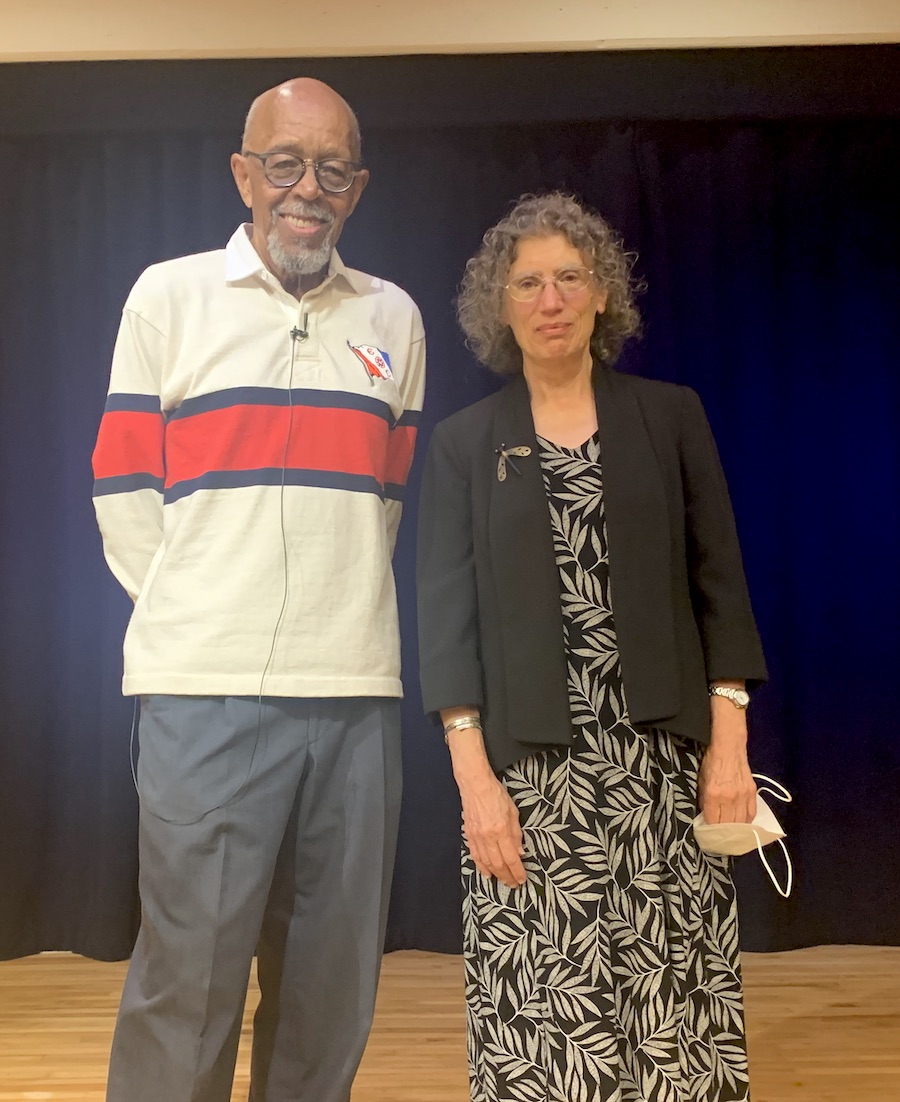
He was invited into The Explorers Club in 1993, and included among The HistoryMakers in 2018. When he's not on the road, he runs JRH Marketing Services, which he says is the oldest African American-owned research and consulting firm in the United States. He is also the author of Way Out There: Adventures of a Wilderness Trekker.
Harris says part of his mission is to encourage everyone—regardless of age, ethnicity or physical fitness—to experience, "in their own way and at their own pace, all the benefits that come from spending time in the great outdoors. I believe this will motivate them to support, maintain, and protect our natural environments."
At Bowdoin, his focus was highlighting some of our overlooked or distorted past. “I’m speaking to you today from my two perspectives: as a social scientist, and as an explorer,” he said. “I believe this gives me a unique insight into the impact of this flawed reporting of history.”
In his personal anecdotes and historical narratives, Harris argued for the use of more nuance when depicting the experiences and personhood of Black explorers—even when their portrayal is meant by white historians to be positive. He explained the "Sambo" and "Superman" references in the title of his talk: “The 'Sambo' explorer was naturally inferior—he knew his place and stayed there, voluntarily, because he believed it was best for him. We cast him in a less favorable light and ignore positive aspects of his character,” Harris said.
“By contrast, in the ‘Superman’ interpretation, the Black explorer becomes akin to a superhero—the ultimate role model…who triumphs over a harsh environment and an unfair society. Sadly, the practitioners of this interpretation are as willing as ‘Sambo’ practitioners to ignore accurate reporting and interpretation in order to advance their own objectives.”
Harris believes it is equally necessary to acknowledge the struggles of Black explorers along with the triumphs. “I’ve been exhilarated, hurt, lost, uplifted, wet, hungry, tired, and fulfilled, just like countless explorers before me. I’ve been scared so many times—if I had a PhD, I would be ‘Doctor Fear,’” said Harris. “But, I've been lucky to have had a lot of experiences worldwide, and to learn a lot in a way that also provides the adventure and excitement that I really like.”
“These diversity, equity, and inclusion initiatives have resulted in efforts to recognize individuals who have been forgotten or overlooked by historians of exploration,” said Susan Kaplan, professor of anthropology and director of the Peary-MacMillan Arctic Museum and Arctic Studies Center. “J.R. Harris brings to light people whose accomplishments should be celebrated and studied.”

